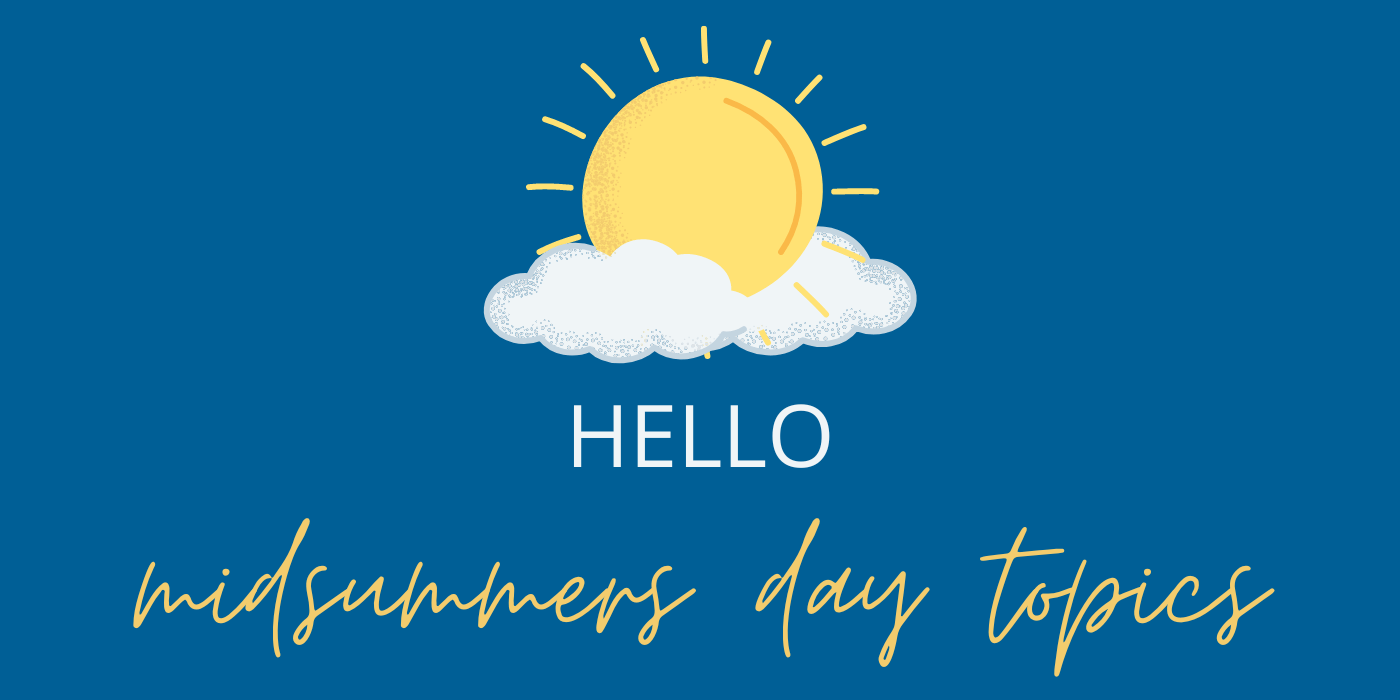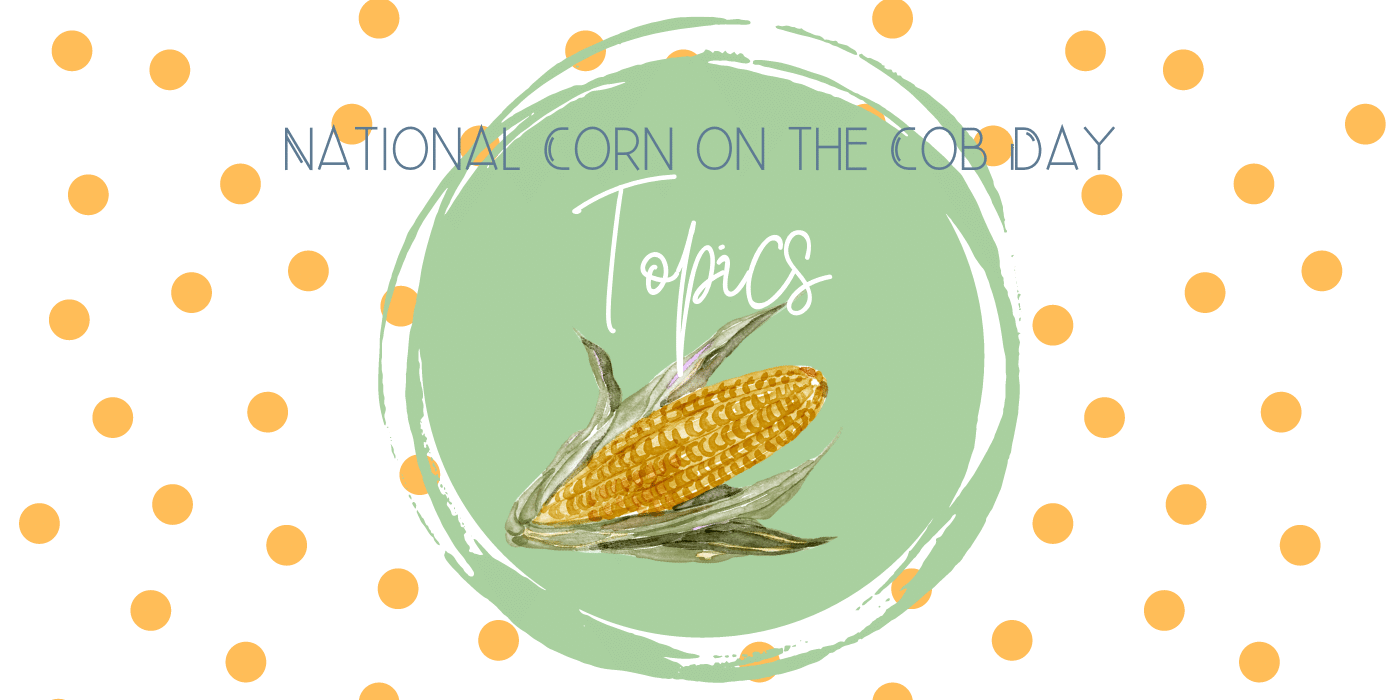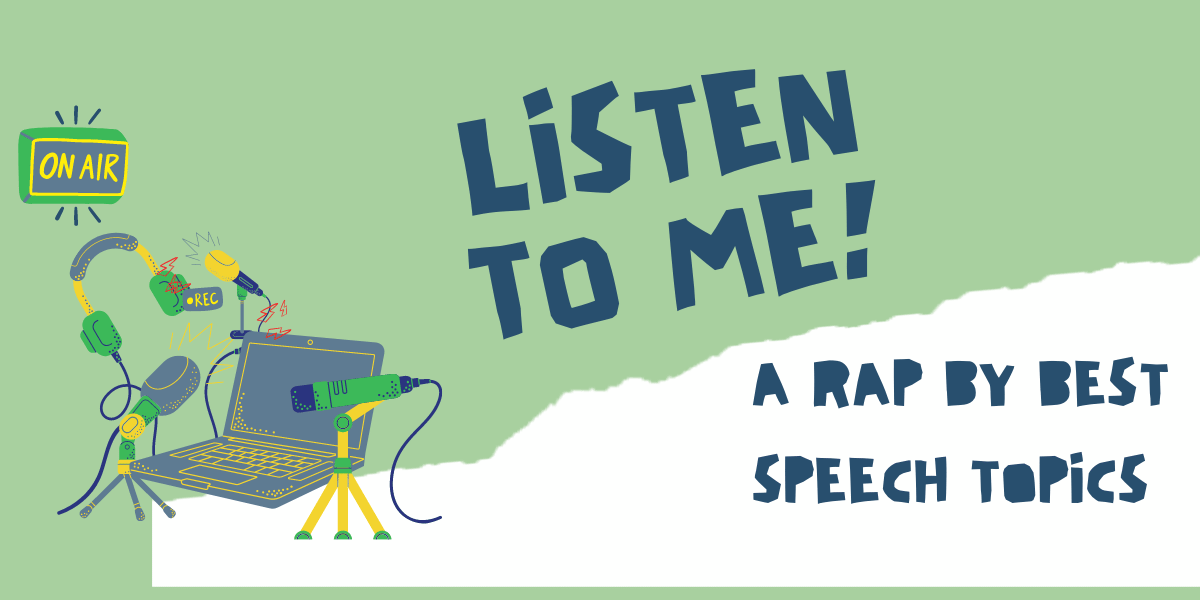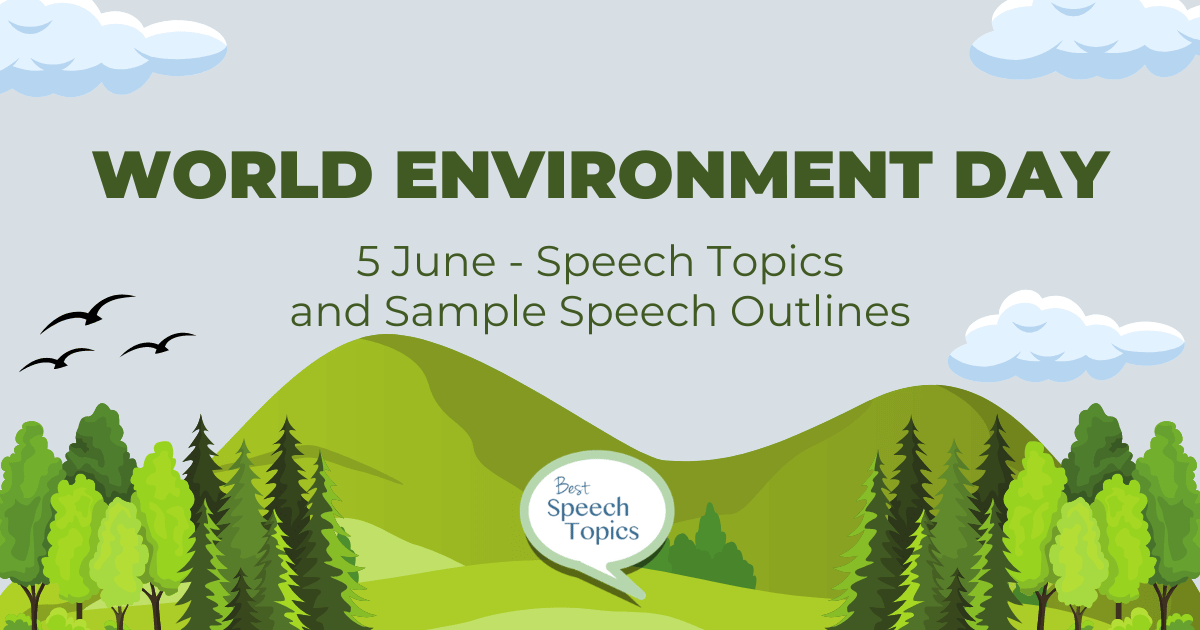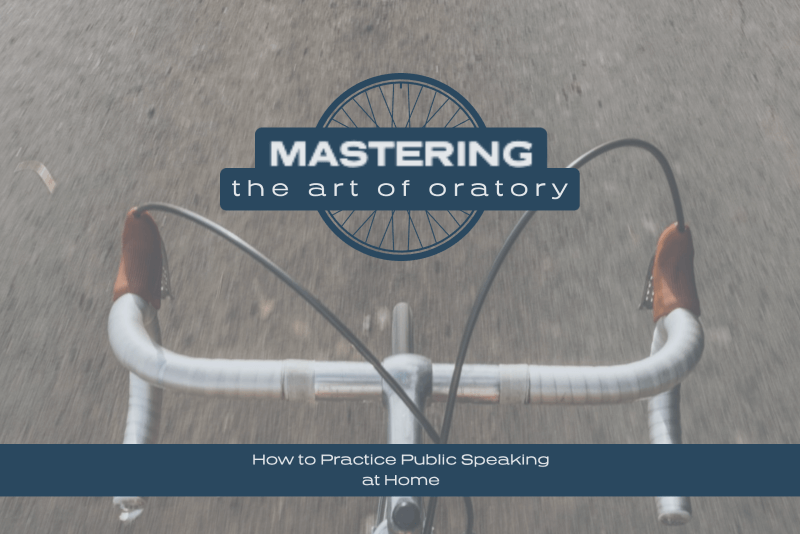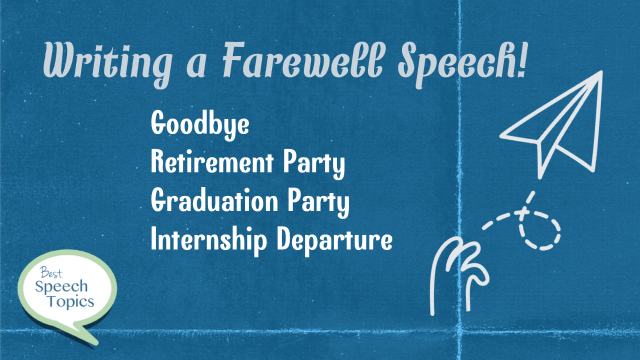Best Speech Topics Blog
The Best Speech Topics Blog will help you to keep up-to-date with all the offerings at best-speech-topics.com and user-submitted examples. We look forward to inspiring you with topic ideas, speech content suggestions, and public speaking examples.
World Honey Bee Day Speech Topics
Buzz into action on World Honey Bee Day! Discover World Honey Bee Day Speech Topics that celebrate our fuzzy friends. Bee a voice for change!
World Lion Day Speech Topics
Discover these World Lion Day Speech Topics! Inform, persuade, or entertain with our ample list. Unleash the power of your voice for lion conservation.
National Waffle Day Speech Topics
Discover the Delectable World of Waffles with National Waffle Day Speech Topics! Explore unique speech topics to wow your audience with waffle wisdom!
Midsummers Day Speech Topics
"Unearth a trove of Midsummers Day speech topics, from informative discourses to fun debates. Make your speech as captivating as the longest day of the year.
Persuasive Speech Examples by Ametha Draper
Ametha Draper shares sample persuasive speeches on justice and violence for others to learn and share
Continue reading "Persuasive Speech Examples by Ametha Draper"
IMPORTANCE OF TEACHER IN LIFE
Ladies and gentlemen, Honorable judges, distinguished guests, and my fellow peers, I stand before you today to emphasize the profound impact and immense
4th of July Speech Topics - A Comprehensive Guide
4th of July speech topics that will spark your creativity! From historical insights to fun-filled themes, dive into Independence Day like never before!
Continue reading "4th of July Speech Topics - A Comprehensive Guide"
Juneteenth Speech Topics - Ideas for Your Presentation
Unearth a treasure trove of Juneteenth speech topics to inspire your next presentation. Inform, persuade, improvise, or entertain with these engaging ideas!
Continue reading "Juneteenth Speech Topics - Ideas for Your Presentation"
International Day of the African Child Speech Topics
Discover captivating International Day of the African Child speech topics in our guide with sample speech. Unearth powerful topics and make a difference.
Continue reading "International Day of the African Child Speech Topics"
National Sunglasses Day Speech Topics: Celebrate in Style!
Discover the hottest National Sunglasses Day speech topics! Unleash your inner speaker and shine a light on eye protection, style, and more. Don't miss out!"
Continue reading "National Sunglasses Day Speech Topics: Celebrate in Style!"
Global Wind Day Speech Topics: Inspire and Blow Your Audience Away
Harness the power of the wind with a compelling guide to Global Wind Day speech topics. Unearth ideas for a presentation - A whirlwind of inspiration!
Continue reading "Global Wind Day Speech Topics: Inspire and Blow Your Audience Away"
World Blood Donor Day Speech Topics: Bringing Lifelines to Life
"Unlock the power of words! Discover compelling world blood donor day speech topics to inspire. Choose Informative, Persuasive, Impromptu, and Fun Topics.
Continue reading "World Blood Donor Day Speech Topics: Bringing Lifelines to Life"
World Day Against Child Labour Speech Topics: Harnessing Our Voices
"Unleash your voice for change! Discover 70+ compelling World Day Against Child Labour speech topics to mark the cause. Your perfect topic awaits!"
Continue reading "World Day Against Child Labour Speech Topics: Harnessing Our Voices"
Corn on the Cob Day Speech Topics - Unveiling a Variety of Kernels
"Discover the a-maize-ing world of Corn on the Cob Day Speech Topics! Unearth kernels of wisdom with 70+ engaging ideas. Click to corn-quer your speech!"
Continue reading "Corn on the Cob Day Speech Topics - Unveiling a Variety of Kernels"
Iced Tea Day Speech Topics: A Guide for a Refreshing Delivery
"Sip & Speak: Uncover the secrets of National Iced Tea Day Speech Topics with our tantalizing speech topics guide. Brew a speech you can't resist!"
Continue reading "Iced Tea Day Speech Topics: A Guide for a Refreshing Delivery"
Donald Duck Day Speech Topics: Ideas to Celebrate a Beloved Character
"Unleash your creativity with Donald Duck Day Speech Topics! Dive into our trove of engaging speech topics that make this day quack-tastic.
Continue reading "Donald Duck Day Speech Topics: Ideas to Celebrate a Beloved Character"
My Rap Speech Sample About Artificial Intelligence and Other Examples
In this article is we explore a recent rap speech sample as a use of rap as a bridge between music and speech. Rap provides a creative way to practice speech.
Continue reading "My Rap Speech Sample About Artificial Intelligence and Other Examples"
Persuasive Topics for Valentines
The top five persuasive topics for Valentines day including commercialization, paternalism, inclusiveness, and religion
World Ocean Day Speech Topics Deep Dive: Be a Voice for the Oceans
"Unleash the power of your voice for the oceans! Dive into engaging World Ocean Day speech topics. Your perfect topic and sample speech outline awaits!"
Continue reading "World Ocean Day Speech Topics Deep Dive: Be a Voice for the Oceans"
World Bicycle Day Speech Topics: Pedaling Towards Awareness
Uncover exciting World Bicycle Day speech topics & turn your passion for cycling into inspiring words. Click to pedal towards an engaging speech!
Continue reading "World Bicycle Day Speech Topics: Pedaling Towards Awareness"
World Environment Day Speech Topics for All Ages: Unlocking Green
"Discover an array of intriguing World Environment Day speech topics, from informative to fun! Craft your unique message for a greener future today."
Continue reading "World Environment Day Speech Topics for All Ages: Unlocking Green"
What is a Valedictorian? - Unraveling the Meaning
"Explore the definition, history, and significance of being a valedictorian. An engaging guide to answer the question - What is a Valedictorian?
Continue reading "What is a Valedictorian? - Unraveling the Meaning"
Crafting an Unforgettable Valedictory Speech: A Guide and Sample
"Master your valedictory speech with our comprehensive guide and inspiring sample. Make your graduation day truly unforgettable!"
Continue reading "Crafting an Unforgettable Valedictory Speech: A Guide and Sample"
Good Speech Topics for College - How to Find and Choose the Right One
Selecting good speech topics for college classes or audience - suggestions for topics, books, resources, and articles to help overcome the challenge.
Continue reading "Good Speech Topics for College - How to Find and Choose the Right One"
Group Speech Topics - Introducing through Icebreakers
Find group speech topics through several icebreakers for student and campers to learn public speaking skills and gain confidence in a group environment.
Continue reading "Group Speech Topics - Introducing through Icebreakers"
Controversial Topics for Speech - Marijuana vs. Alcohol
Marijuana vs. Alcohol: A Primer on Controversial Topics for Speech and Extemporaneous Debate
Continue reading "Controversial Topics for Speech - Marijuana vs. Alcohol"
Student Council Speeches with Twelve Vital Tips and a Sample Speech
Sage advice to win election: Student Council Speeches with Twelve Vital Tips and a Sample Speech from Charlie
Continue reading "Student Council Speeches with Twelve Vital Tips and a Sample Speech"
Artificial Intelligence Speech Topics to Inform or Persuade
Here is a smart list of artificial intelligence speech topics to inform or persuade an audience. Learn about the issues AI presents and get ideas.
Continue reading "Artificial Intelligence Speech Topics to Inform or Persuade"
Sample Informative Speech: The Importance of Sleep
There are many demands on our time (work, family, errands), and we want to find time to relax. To make it all fit, sometimes we sacrifice sleep. However,
Continue reading "Sample Informative Speech: The Importance of Sleep"
Speech Topics for Grade 8 Perfect for Informative Speech Presentations
Great informative speech topics for grade 8 with sample outlines for several. Eight grade topics several informative categories.
Continue reading "Speech Topics for Grade 8 Perfect for Informative Speech Presentations"
Question of Policy Speech Topics: From Fun to Serious Across Grades
Answer the question of policy speech topics across grades by providing categories for high school to college, middle school, and fun ideas.
Continue reading "Question of Policy Speech Topics: From Fun to Serious Across Grades"
How to Write Valedictorian Speech
Guide: How to Write Valedictorian Speech. Learn the three common stories to include in a valedictorian speech and how to outline.
Retirement Farewell Speech
Write a retirement farewell speech to express gratitude and share memories. Review the steps to a heartfelt retirement farewell speech and see samples.
Choosing Topics for a Process Speech
Eight essential steps for choosing topics for a process speech. How to prevent choosing the wrong idea.
10 Brilliant Ideas for a Process Speech: A Comprehensive Guide
This guide explores ideas for a process speech including topic suggestions and tips to help deliver a process speech presentation.
Continue reading "10 Brilliant Ideas for a Process Speech: A Comprehensive Guide"
Interesting Topics For Informative Speech (Elementary School)
Interesting Topics for Informative Speech that are appropriate for younger students about elementary or middle school age.
Continue reading "Interesting Topics For Informative Speech (Elementary School)"
Interesting Speech Topics For Students on Personal Growth
Interesting Speech Topics For Students on Personal Growth and Development - ideal for high school and college students
Continue reading "Interesting Speech Topics For Students on Personal Growth"
Why You Should Donate Blood-speech-sample
Best Speech Topics provides this sample speech "WHY YOU SHOULD DONATE BLOOD" to help advocates and to describe the process of writing a persuasive speech.
Continue reading "Why You Should Donate Blood-speech-sample"
Welcome Speech to An Event
Learn how to prepare a welcome speech to an event and the type of occasions where the welcome speech is appropriate.
Welcome Speech for An Event
Two samples of a welcome speech for an event. 1. Sample welcome speech for a fundraiser. 2. Sample welcome speech for church.
Student Congressional Debate Topics
New Student Congressional Debate Topics with three example congress bills and example authorship speech outlines
Funny Speeches for School
Funny speeches for school and how to delivery a funny speech at school without offending anyone.
Futuristic Science Speech Topics
Futuristic Science Speech Topics and Ideas for a student speech, original oratory, or public speaking practice




